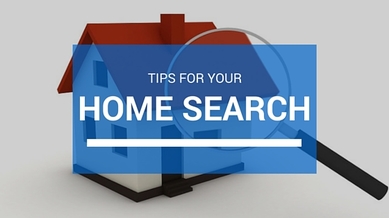
The Bigger Picture
What does your ideal home look like? Write down what you expect in a new home, and list the items in order of most important to least important. This is a good way to figure out what is most important to you, and it will allow you to better understand what you would be willing to sacrifice when you are on the hunt, such as number of bedrooms versus distance to work. Having this list will help you start your search for your dream home.
Create a Budget
Having a budget is always important and absolutely necessary when searching for a new home. Being aware of the costs associated with purchasing a home will help you create a realistic budget. Today’s minimum down payment ranges from 3.5 percent on an FHA loan to 10 or even 20 percent for conventional loans, which means you would need to provide at least $7,000 and up to $40,000 on a $200,000 house. Also, keep closing costs in mind, which more than likely will need to be paid in cash and can run anywhere from 3-4 percent of your total purchase price. The best way to reduce your mortgage is by improving your credit score before you start the process of house hunting. Visit here for more financial tips on preparing you for home buying.
Research Local Neighborhoods to Narrow Down the Search
This is particularly important, especially if you don’t know a lot about the area you plan to move to. Even so, many of us may not be all that familiar with other suburbs or towns around us. Before you type “homes for sale in (insert city name here)” in Google, learn about the area that might be your new stomping grounds. Base your searches on distance to work for yourself, your partner or spouse, as well as distance from family, grocery stores, day care, schools, and other locations that may be important to you.
The Search
Searching for a home is done more efficiently with a real estate agent, they will have the most up-to-date listings and be able to provide location information. Use online resources such as Homes.com, Realtor.com or Zillow.com to browse homes that fit your budget and are in the location where you would like to live. You can also ask friends and family to assist you, in case they have advice or have seen homes that fit your criteria. Having an extra helping hand will make the house hunting process much easier and less stressful!
Don’t Get Too Attached to the Homes You Look At
Narrowing down your home search online certainly helps when you start to do leg work, but try to keep an objective mindset. Remember that the home in question might not live up to your expectations in person. Photos can help you get a better look at the house, but some sellers may only pick photos that show their home in the best light. Sure, the kitchen has new counters, appliances and flooring, but who knows what other problems lurk right in the next room.
Write Down Questions You Have About the Home
Most real estate sites have short ads with a few photos and even less information. If you decide to look at the home in person, use your time online to create a list of questions to ask the relator or seller once you look at the home in person. Tap into your inner skeptic and question every aspect of the home. You don’t want to be deceived by the ad online – especially when it involves a large investment like a mortgage.
Once you find a few homes you like online, contact a local real estate agent. They can help you get started on the next phase of your home buying journey.
Are You Ready to Buy? 5 Questions to Ask Yourself
Tips To Ensure Your Mortgage Application Is Approved
Mistakes to Avoid When Buying Your Retirement Dream Home
